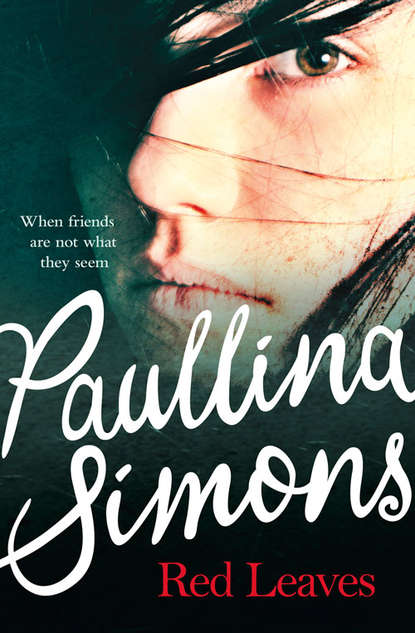По всем вопросам обращайтесь на: info@litportal.ru
(©) 2003-2025.
✖
Red Leaves
Автор
Год написания книги
2018
Настройки чтения
Размер шрифта
Высота строк
Поля
‘The way he looks at me?’ Conni laughed aloud. ‘You are kidding me. Kristina, have you ever seen the way Albert looks at you?’
Kristina had. She knew how Albert looked at her. Turning up a blank expression, she said, ‘Conn, I don’t know what you’re -’
‘Kristina!’ Conni became agitated. ‘He looks at you, and you at him, like - I don’t know, like you’ve been - I don’t know - friends for life. Like he is about to go the front and die and he’s looking at you for the last time. God, it makes me crazy. Don’t tell me you don’t see it!’
‘Conni, I’m sorry, I really don’t.’
‘Yeah, Albert says the same thing. “Conn, you’re crazy,” he says. “Conn, it’s probably just hunger.” “Conn, I look at Frankie the same way,” or “Conn, you silly. What about the way I look at you?'”
Kristina was beginning to feel sick to her stomach. ‘What do you want me to say, Conni?’ she said weakly.
Conni continued as if not hearing Kristina. ‘I said to him, it’s not that he touches you, because he doesn’t, and it’s not that he says things to you, because he doesn’t, it’s just the way he looks at you. I asked him not to look at you anymore.’ Conni took a deep breath and swiped the hair off her face in a manic gesture. ‘God, this is just so ludicrous.’
‘I agree,’ said Kristina quietly. Glancing at the dashboard clock, Kristina got out of the car and went to put her arms around Conni, who didn’t protest but didn’t hug back either.
‘Conn, I’m sorry you’re so upset. Come on, girl.’ Kristina’s arm remained around her shoulders.
‘Am I crazy, Krissy? Am I just plain nuts?’
‘Yes,’ Kristina said, still feeling queasy. ‘Bonkers.’
‘Krissy,’ Conni said, ‘once I saw you guys.’
Kristina missed a beat, maybe two, imagining the worst, before she said, ‘Saw us where?’
‘In Baker Library, sitting in the reserve corridor, looking into the same book.’
‘When?’
‘I don’t know. A few weeks ago.’
‘We were studying. Nietzsche, I think.’
‘Not one part of your bodies was touching, yet I just felt so bad when I saw the two of you.’
‘Conni,’ Kristina said softly, soothingly. ‘We were just studying.’
‘Yeah, I know,’ said Conni in a depressed voice. ‘That’s what Albert told me. I mean, look, I know he loves me, I know that, okay? I just can’t help feeling these things sometimes. I’m sorry.’
Kristina hugged Conni tighter, incredulous. How did I get her to apologize to me?
Conni’s face brightened slightly, and Kristina felt even worse. I’m not going to lie anymore. That’s my new motto, too. I’m going to right my life and I’m not going to.lie anymore.
Getting back into the car, Kristina shifted into reverse and said, ‘I gotta go.’
‘Go, go,’ said Conni, stepping away from the car. ‘Thanks for talking.’
‘Sure,’ said Kristina, hating herself as she drove to Red Leaves House.
At Red Leaves, Betty her friend and boss, had bought Kristina an ice cream cake. It was the thought that counted, because Kristina’d hated ice cream cakes since childhood.
Betty’s assistants and some of the resident girls at Red Leaves had pitched in to buy her a black leather handbag.
Kristina thankfully made a hazy wordless wish that had to do with the smell of pines and the mountains and cold and hope, and blew out the candles. Then she cut the cake and Betty served it, while Kristina went to sit in her favorite chair in the living room.
Despite hating ice cream cakes, Kristina ate every bite and asked for seconds. Afterward, she took her wallet and assorted letters and papers and magazines out of her backpack and stuffed them all into the new handbag. Seeing the pleased, affectionate faces around her made Kristina feel better about her life.
Betty was a woman of about thirty, a graceful, slightly severe-looking woman with pale skin and a sharp nose. Red Leaves House was hers. It had originally belonged to her parents, John and Olivia Barrett, local philanthropists who wanted to do something for their community. They had already contributed plenty to libraries, charities, homeless shelters, and soup kitchens. Red Leaves House was their primary charitable cause. Because it was the first of its kind in the area, it had gained immediate notoriety.
In her freshman year, Kristina had picked up a brochure about Red Leaves House at the Dartmouth-Hitchcock Medical Center and agreed to work there as part of her work/study program. She had been coming every Monday and Thursday afternoon for the last three years. Kristina wished it paid more, especially during the lean months. More important, it got her away from Dartmouth College for two days a week, and getting away from Dartmouth College was essential for Kristina from time to time. Also, all the pregnant girls adored her.
The drawback was being around babies. Kristina got reluctantly but intensely attached to these infants. When the babies left Red Leaves House, with either their mothers or their adoptive families, Kristina felt as if her own were being taken away from her.
Quitting wasn’t an option. Quit and do what? She was loved by the girls and liked by the other counselors, and Kristina was the only one from Dartmouth. It felt like being on another basketball team - Kristina was the All-Ivy center of Red Leaves.
Before Kristina went upstairs, she and Betty chatted.
‘How are your friends?’ asked Betty. ‘Still see them much? You sound like you’re always so busy.’
‘Yeah, I’m busy, but I see them all the time. I’m writing a piece on the death penalty for Jim, and Conni and I went to the movies last Friday night. Saw -’
‘And Albert?’ said Betty. ‘See much of him?’
Suppressing a smile, Kristina eyed Betty. ‘Yeah, I see him once in a while. He’s doing well.’
‘Oh, good, good. You know you’re welcome to invite them over here one Sunday if you’re not busy. You guys were a big hit with all the girls when you came a few months ago and played basketball in our driveway. Maybe you can do that again sometime.’ She spoke shifting her gaze from left to right and not looking straight at Kristina.
Kristina smiled and touched Betty’s arm. ‘Thanks. Yeah, sure. Sure. Maybe I can round them up the Sunday after Thanksgiving. How would that be?’
‘That would be good,’ said Betty, controlling her voice.
‘Where’s Evelyn?’ Kristina asked.
Betty told Kristina, ‘Go upstairs. She’s not feeling well. She’s been asking for you.’
Kristina started upstairs. Betty called after her, ‘She can’t spend a day here without asking when you’re working next. What do you do for that girl?’
‘Oh, you know,’ demurred Kristina. ‘I stick pins in a doll named Evelyn and kill chickens on Fridays.’
‘Nice.’
Fifteen-year-old Evelyn Moss, pregnant with twins, had come to Red Leaves House last summer when she was barely out of her first trimester. A tall, pretty strawberry blonde, Evelyn, racked with morning sickness, was very depressed. Kristina spent her summer term at Dartmouth working at Red Leaves and talking to Evelyn, who slowly turned into a thickset shadow of her former slender self. During the summer all Evelyn wanted was not to be pregnant anymore. She trailed after Kristina, ate nonstop, and gained too much weight. Her blood pressure was out of control.
Evelyn ate through her second trimester and cried through her third. The feeling of not wanting to be pregnant anymore gave way to not wanting to give up her babies. Kristina told Evelyn that that too was normal, but Evelyn would not listen.
Kristina tried convincing Evelyn with statistics. ‘They’re all against you, kid.’ Kristina told her about the number of teenage mothers who are high school dropouts, the number on welfare, the number below the poverty line, and the children’s psychological problems. Nothing Kristina said would bring relief to Evelyn, who now wanted only one thing and would not listen to reason. Evelyn’s parents had told her she had to give the children up for adoption, and Evelyn was still at an age when she listened to her parents.
Kristina could hear Evelyn crying in her room as she opened the door and entered.











